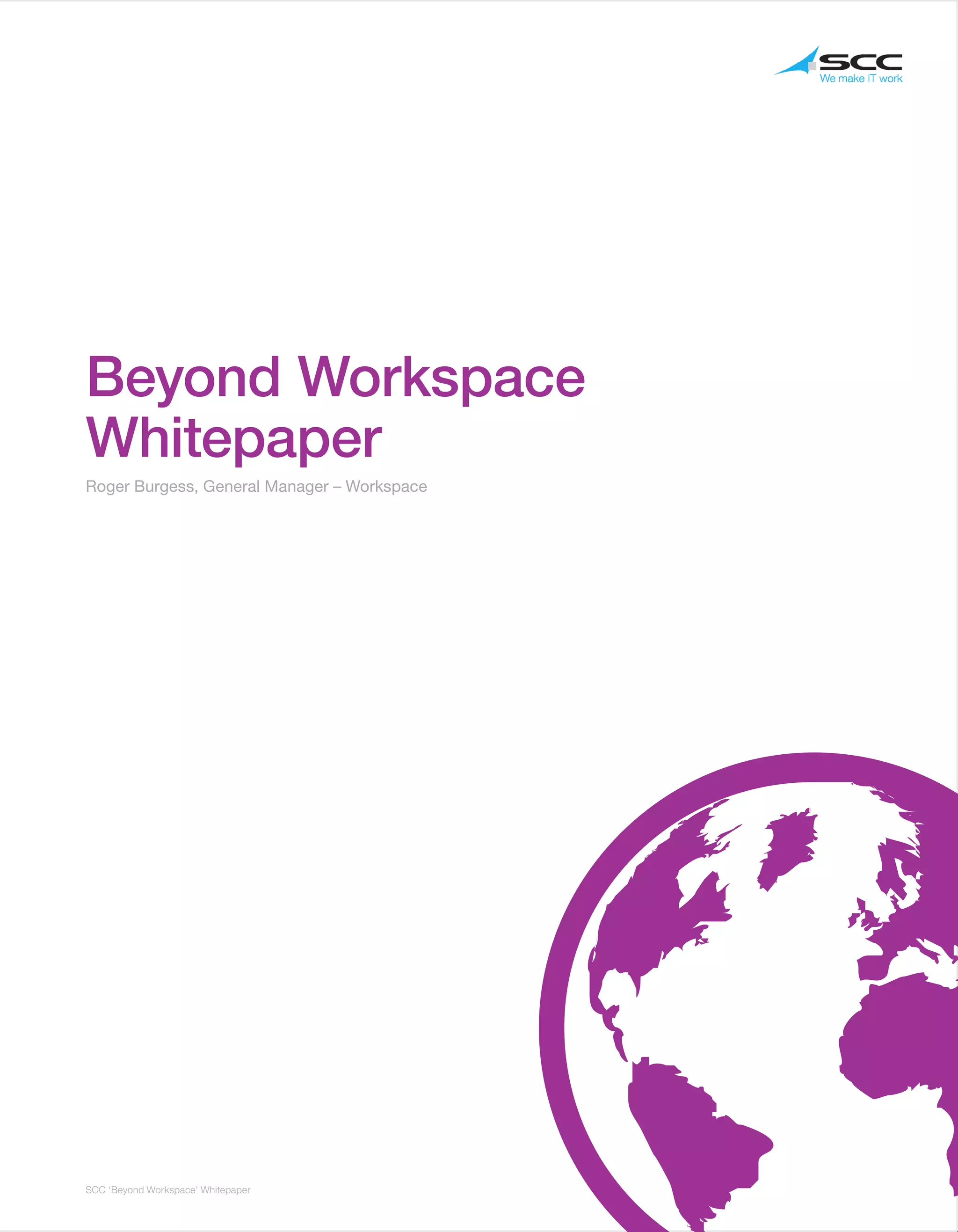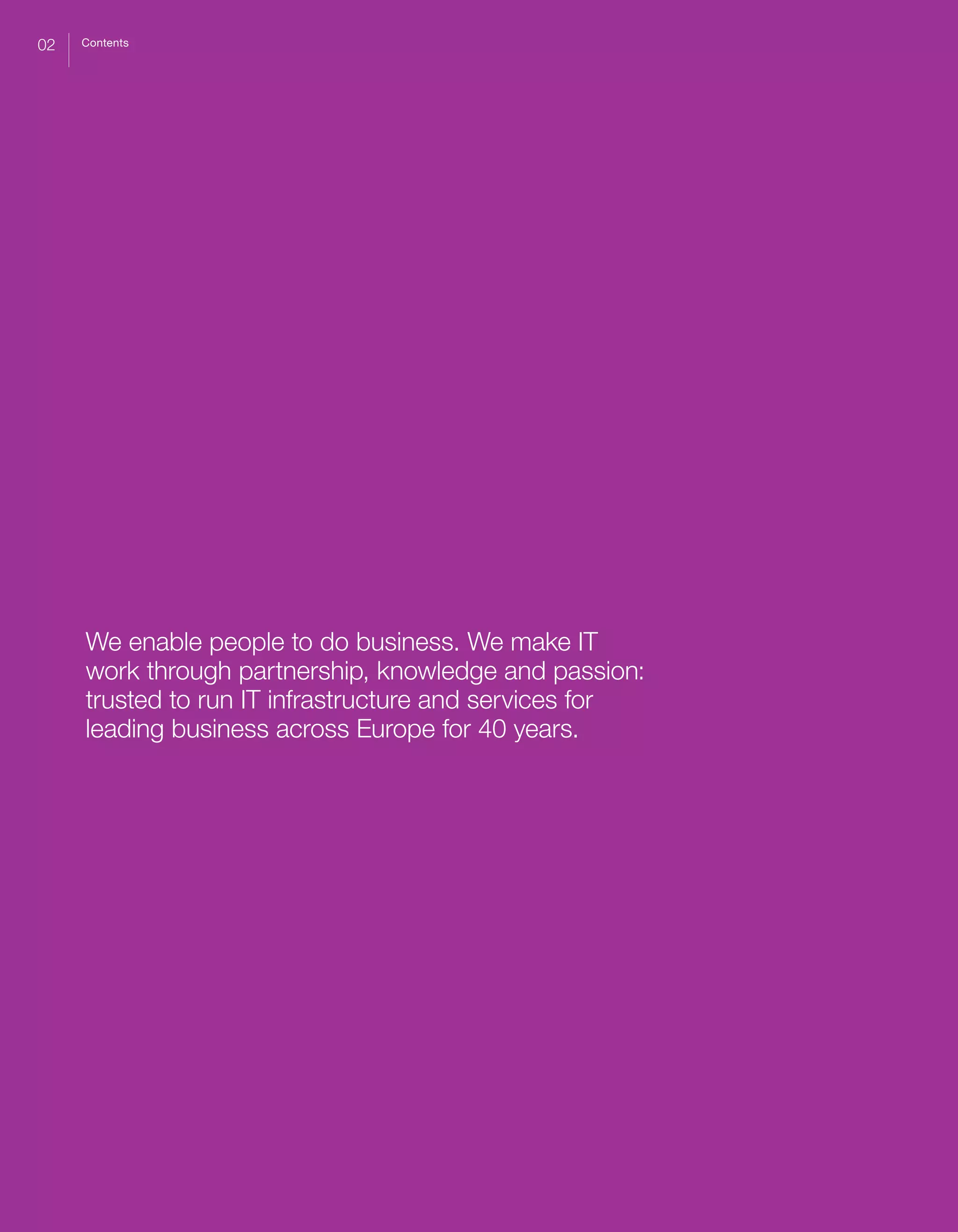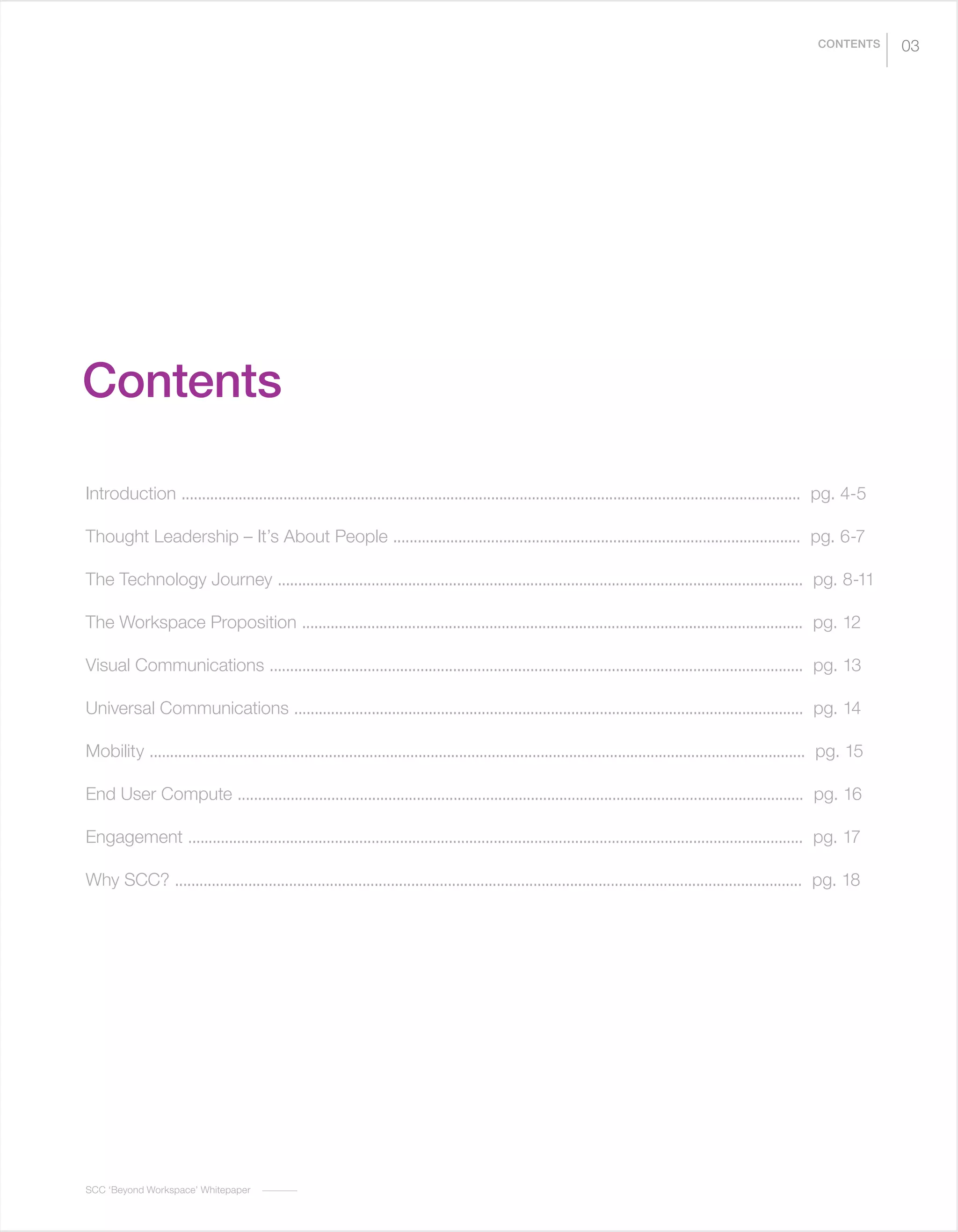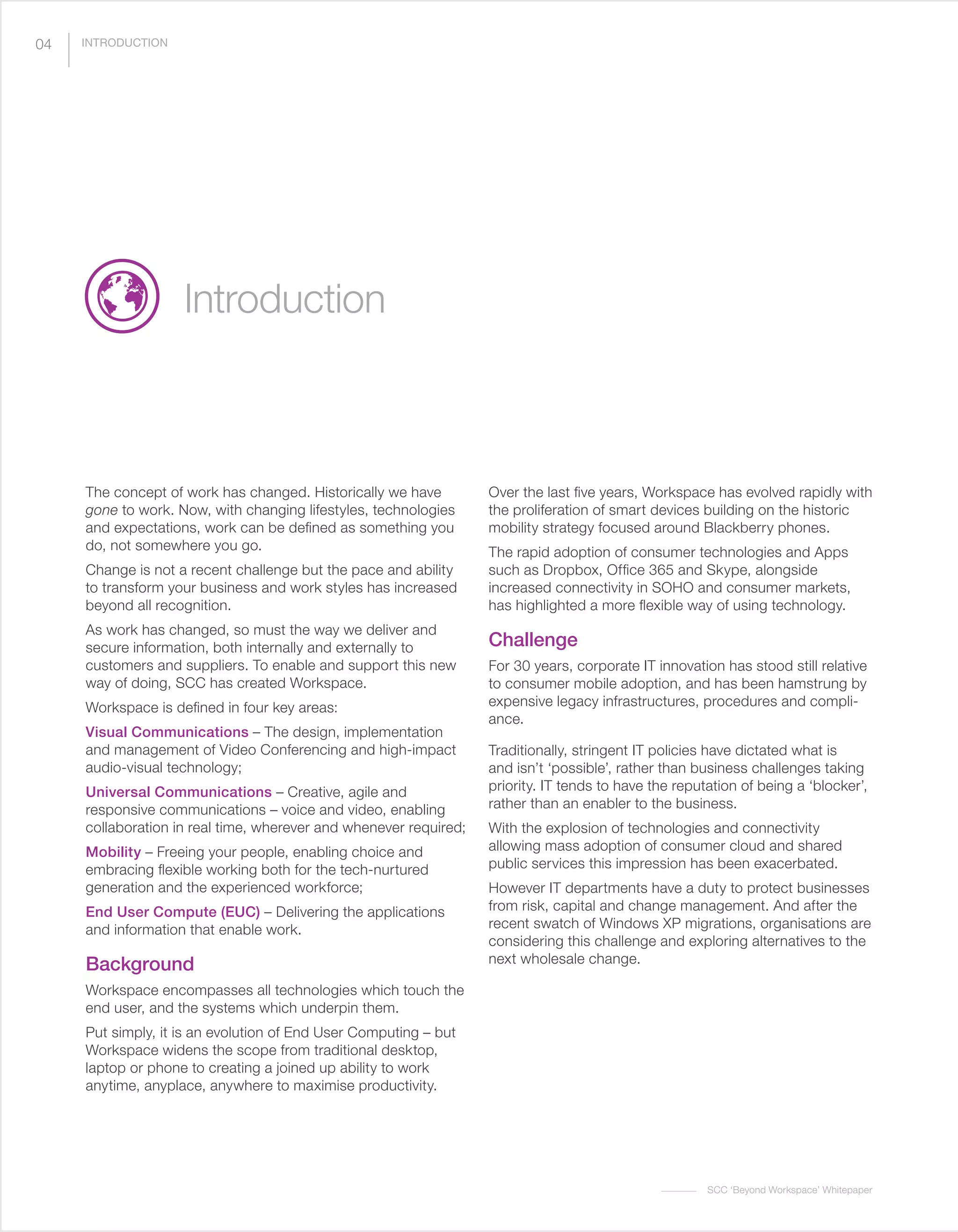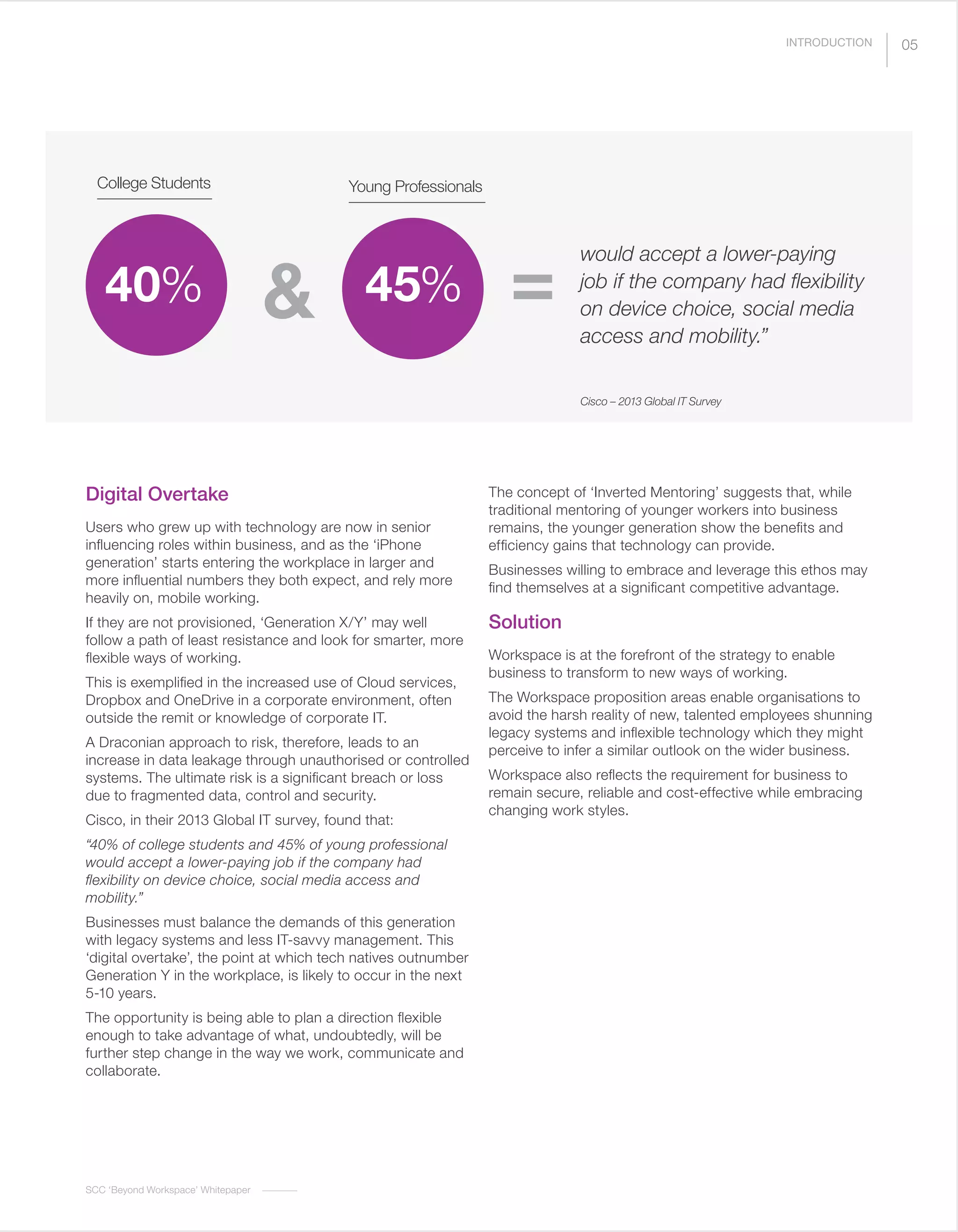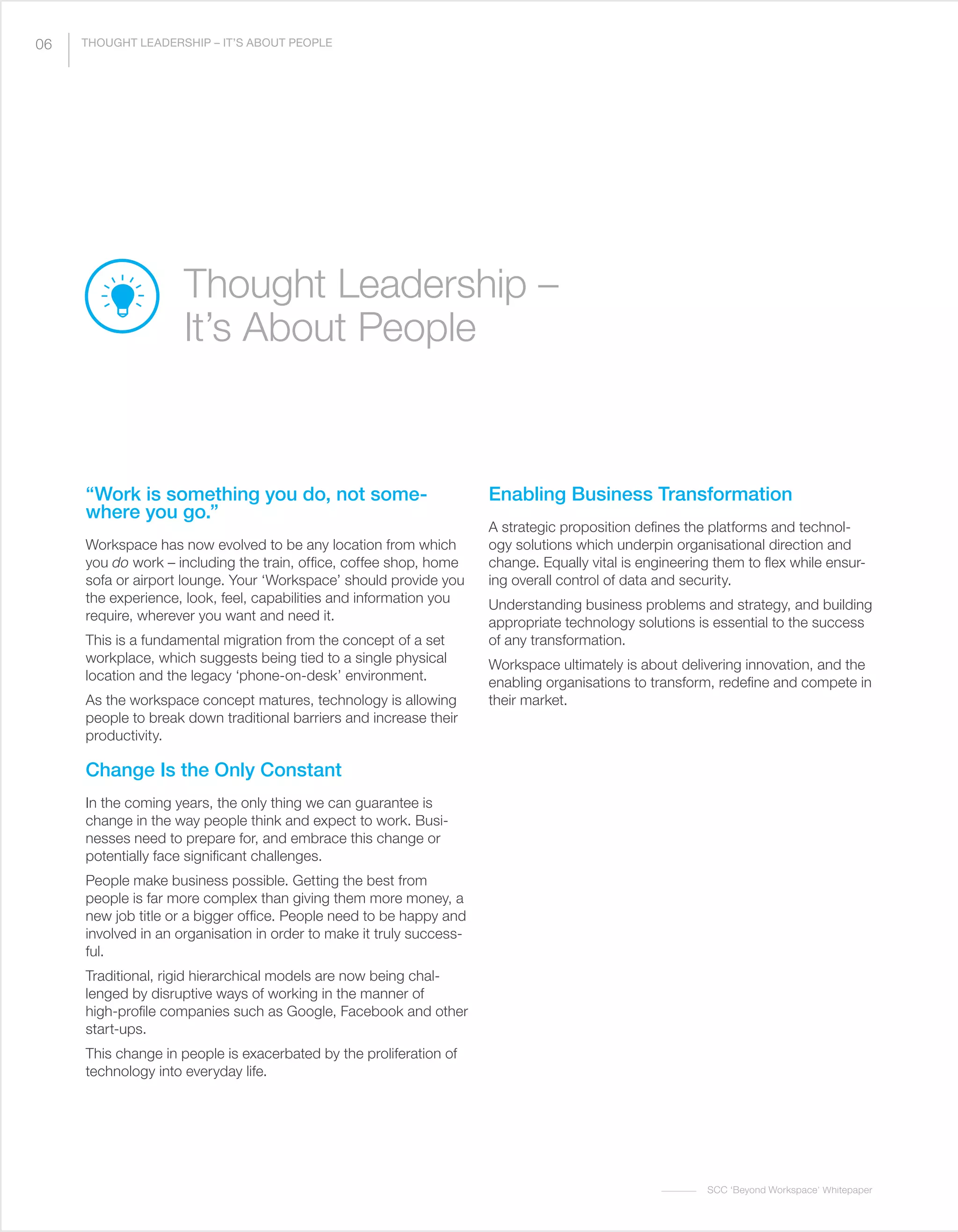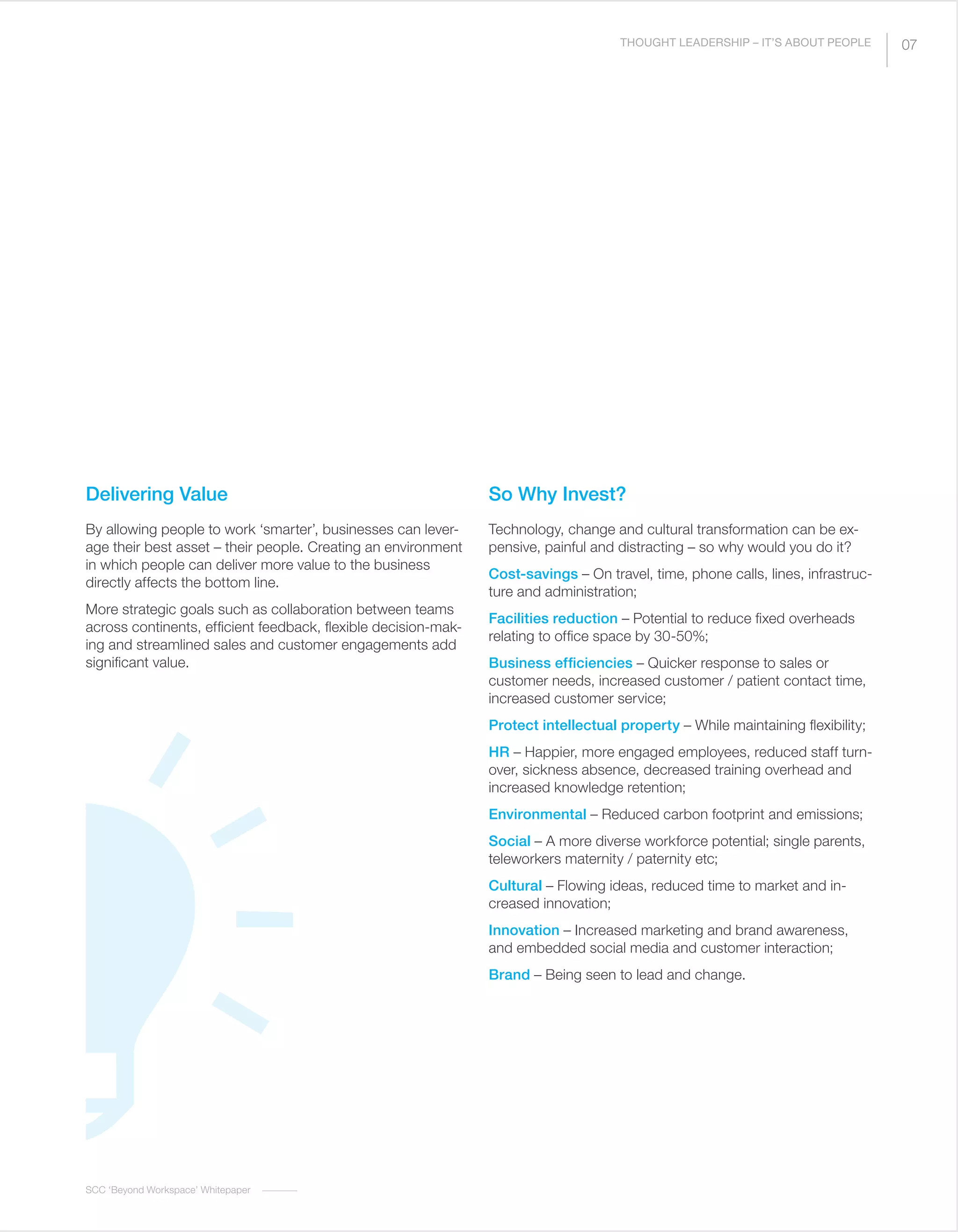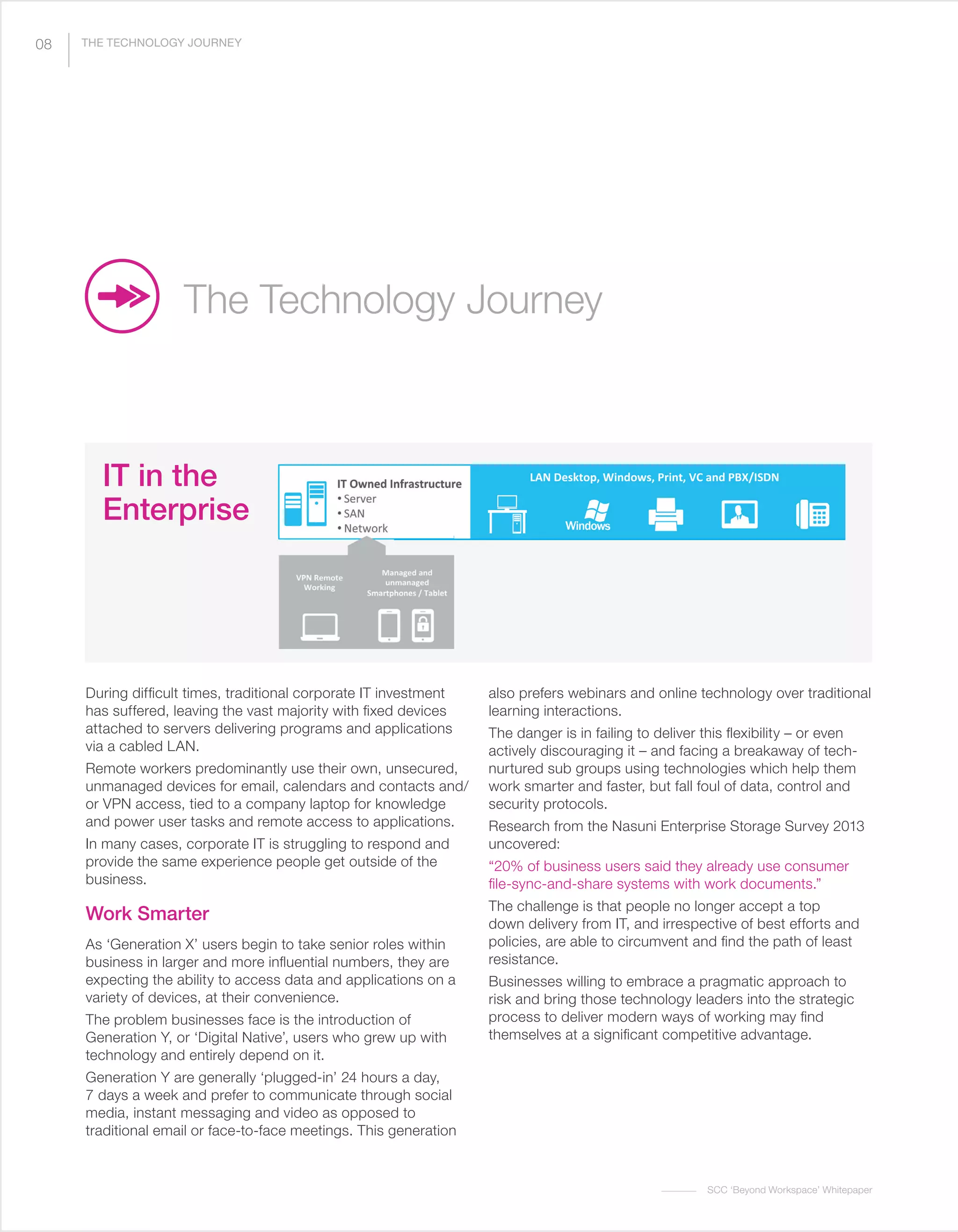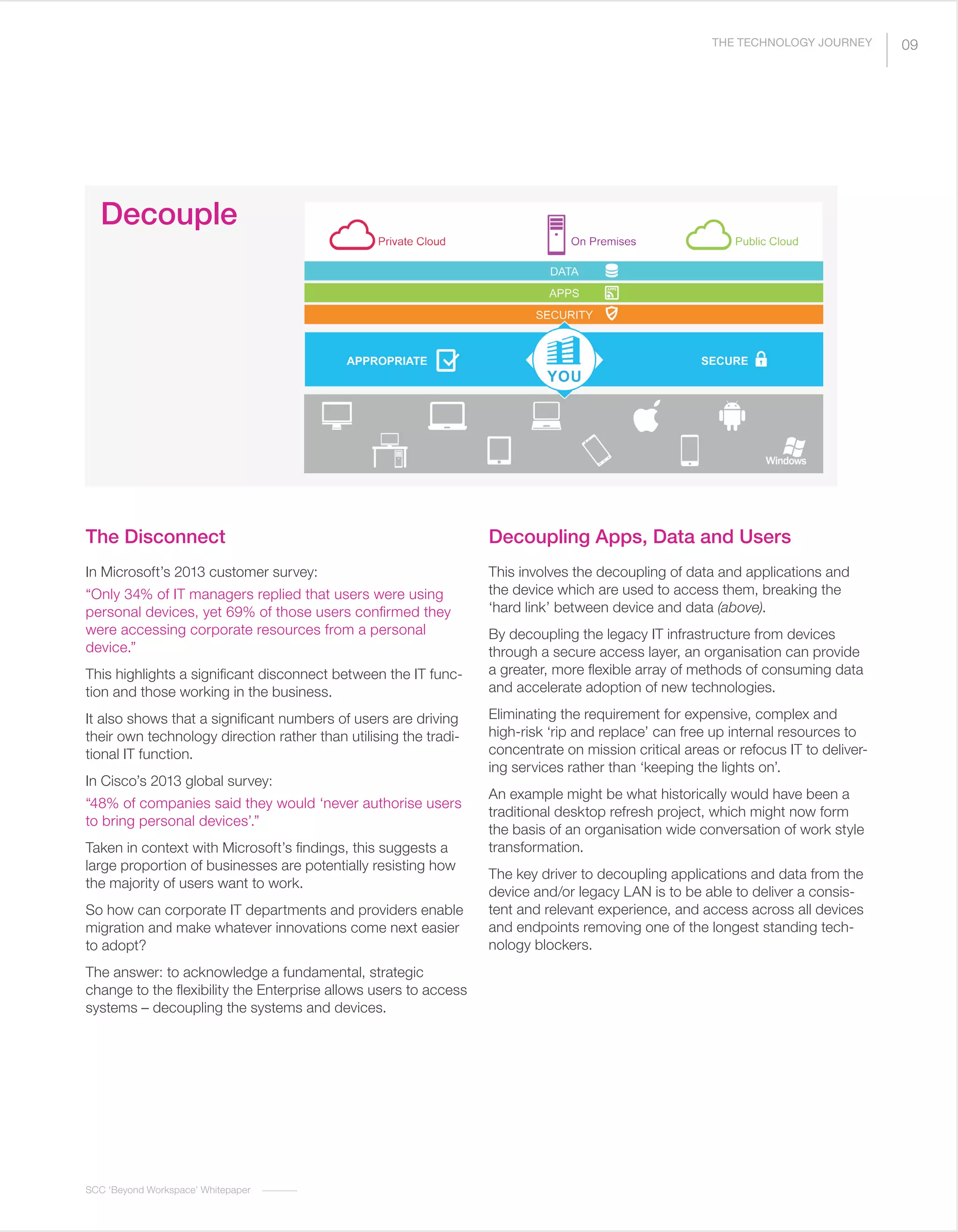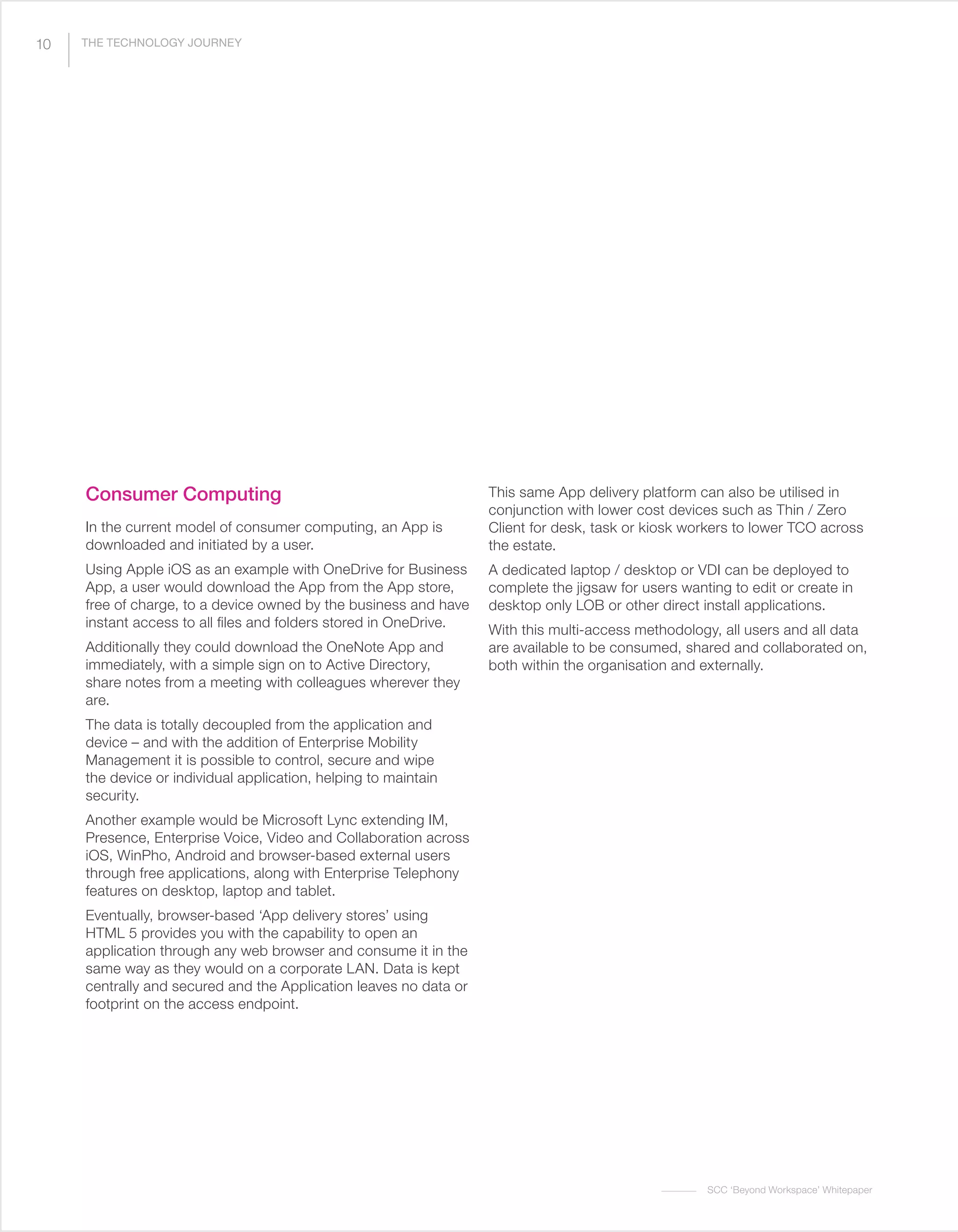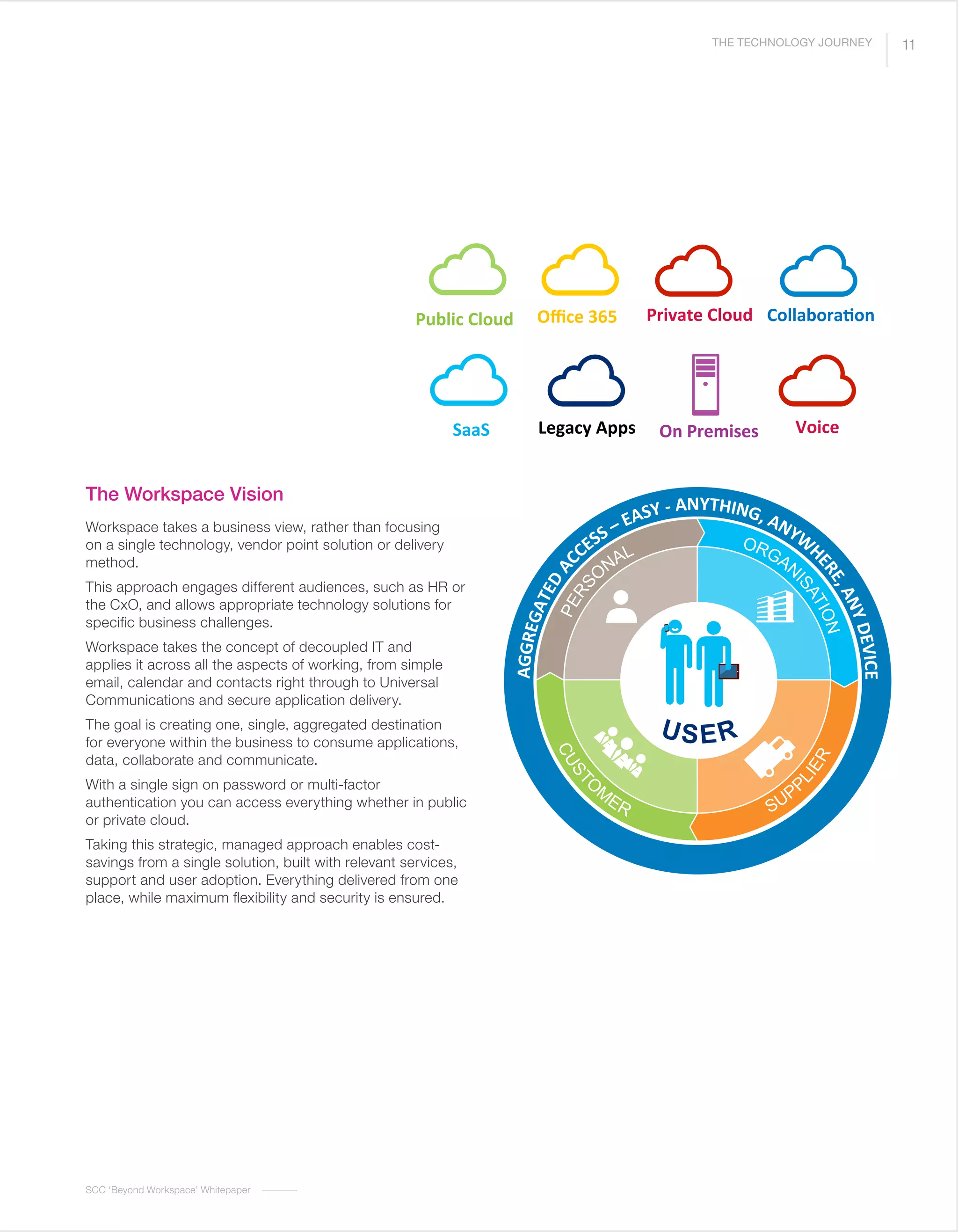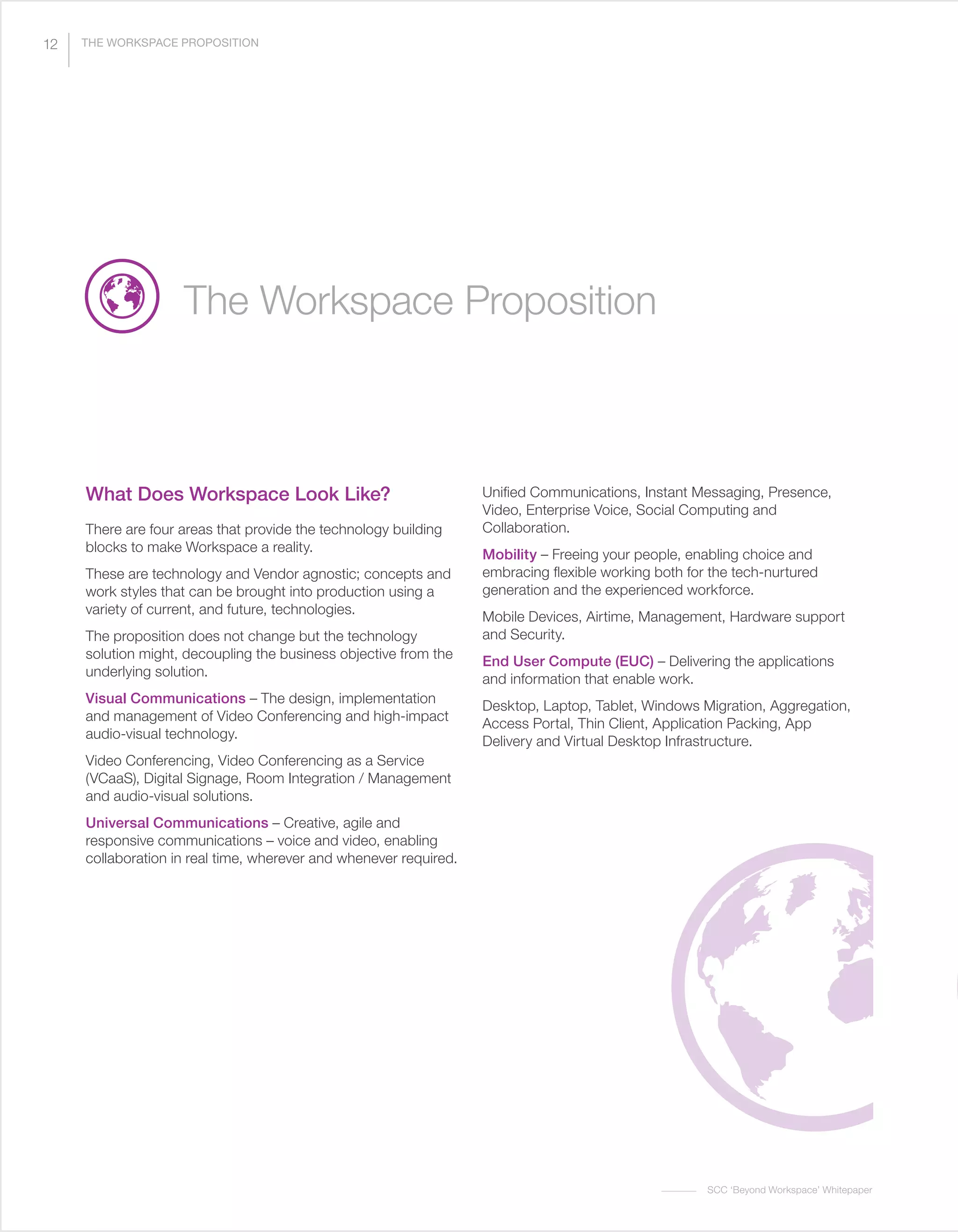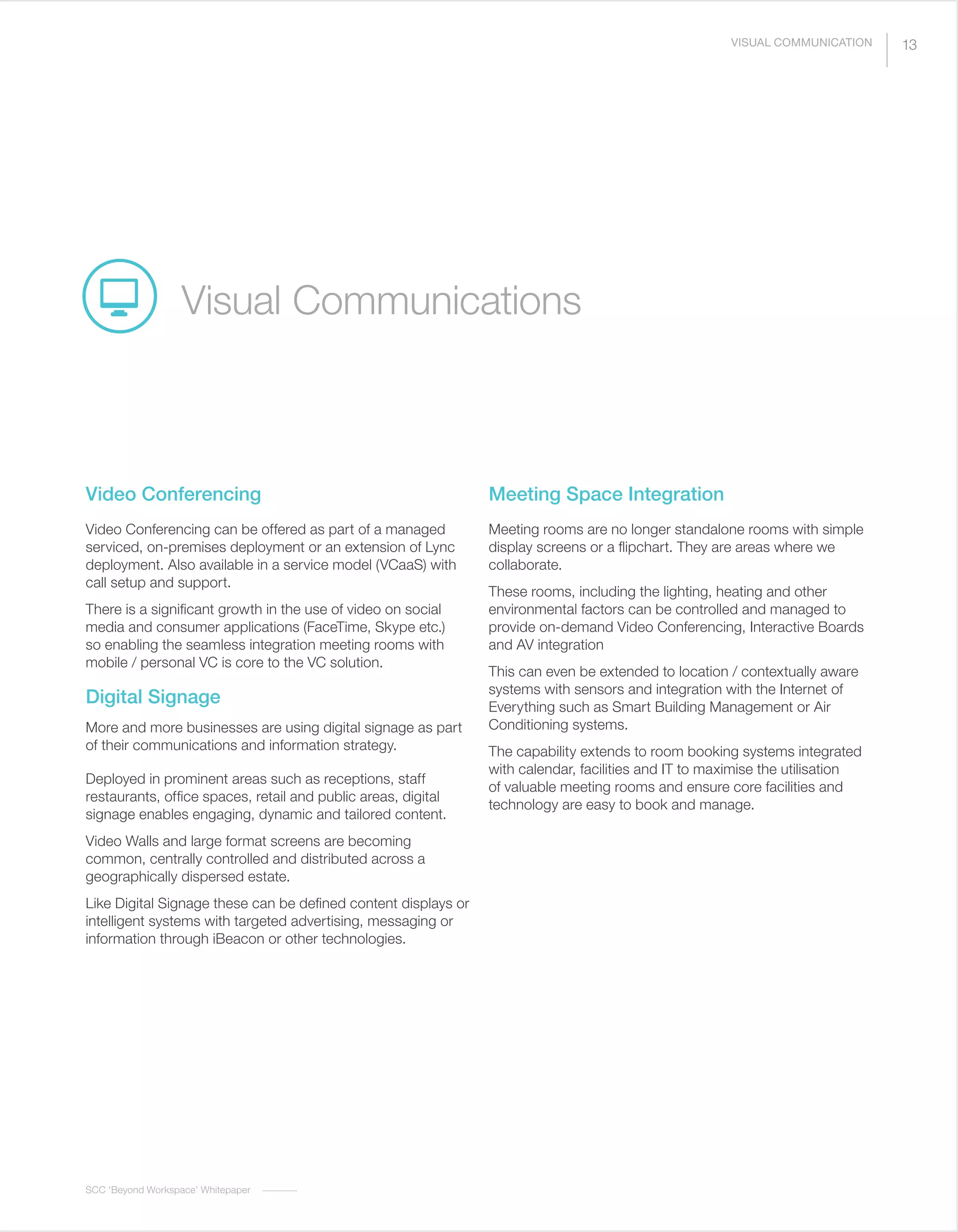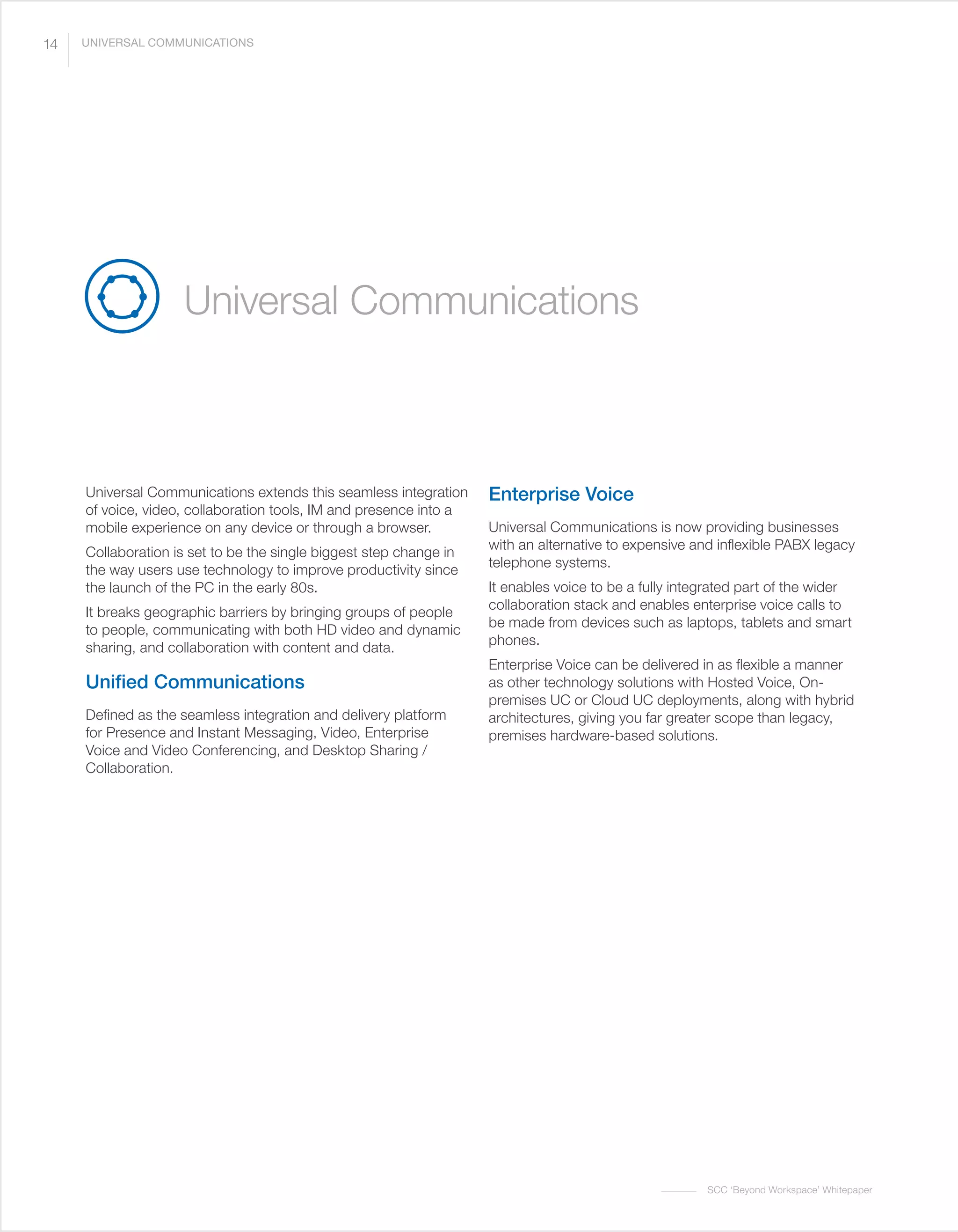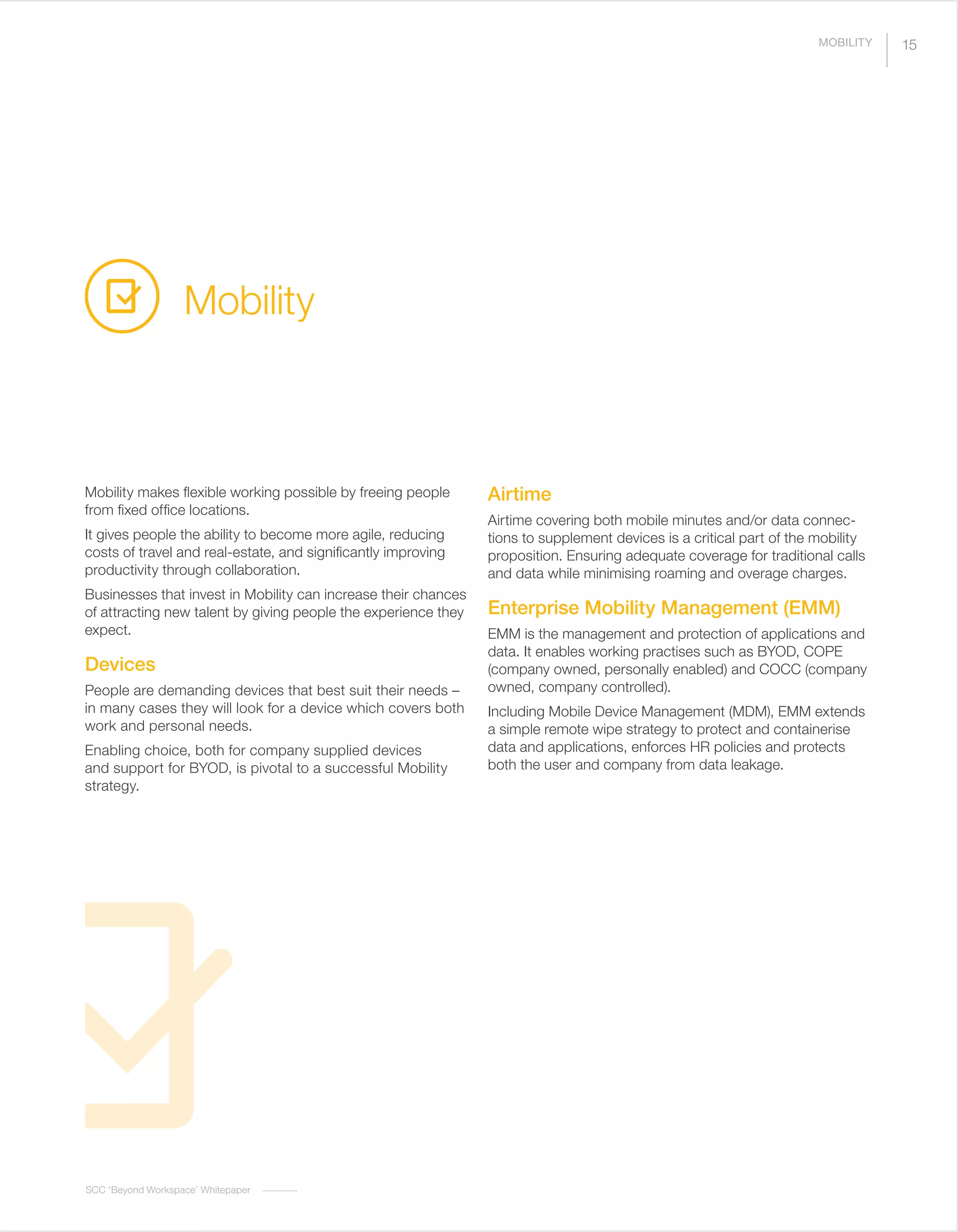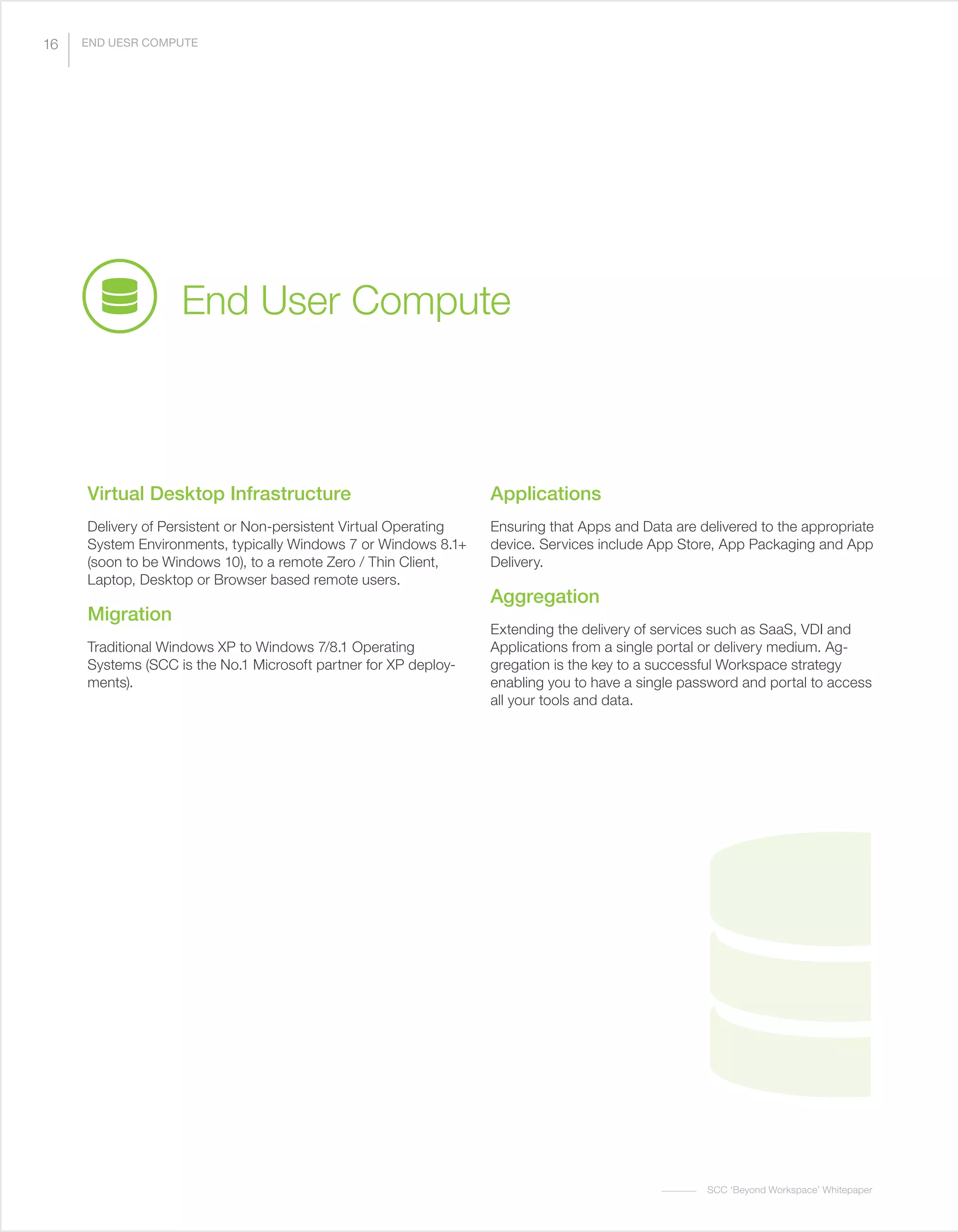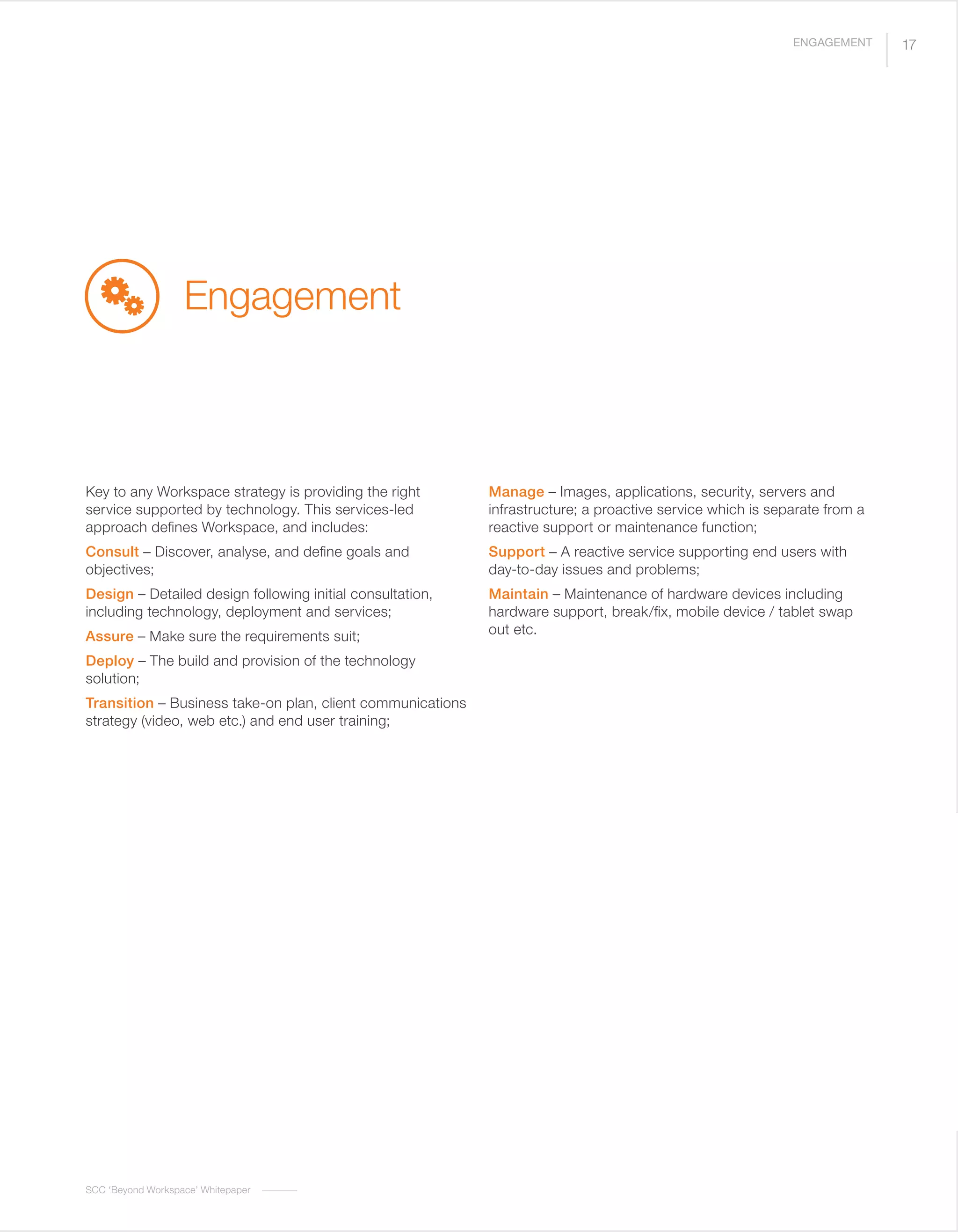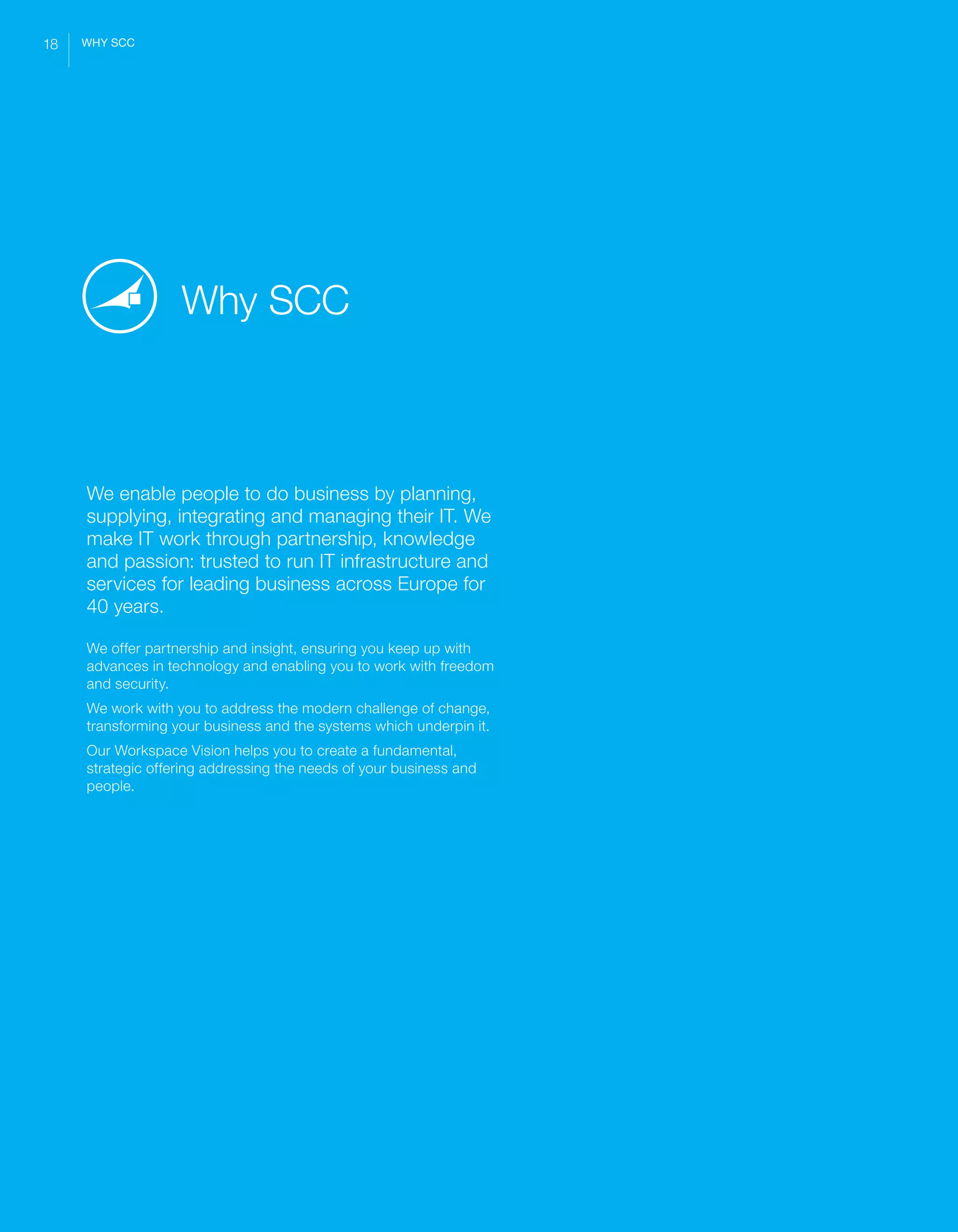This whitepaper discusses the concept of "Workspace", which refers to enabling people to work from any location through flexible technology solutions. It outlines four key areas of Workspace: 1) Visual Communications involving video conferencing, 2) Universal Communications for collaboration through voice, video and messaging, 3) Mobility through mobile devices and flexible working, and 4) End User Computing of applications and information. The document argues that businesses must adapt to changing work styles and expectations of new generations by embracing flexible technologies to access data and applications from any device. This involves "decoupling" applications and data from devices through secure access layers to provide a consistent experience across all endpoints.
